Eviction filings at 20-year high in Columbus, Franklin County and set to worsen. See why
Keaira Sullens has seen many of her neighbors given notice to vacate their apartments at her complex on Columbus' South Side.
Sullens, 28, got one on her door, too.
“They’re not even giving people a chance,” she said.
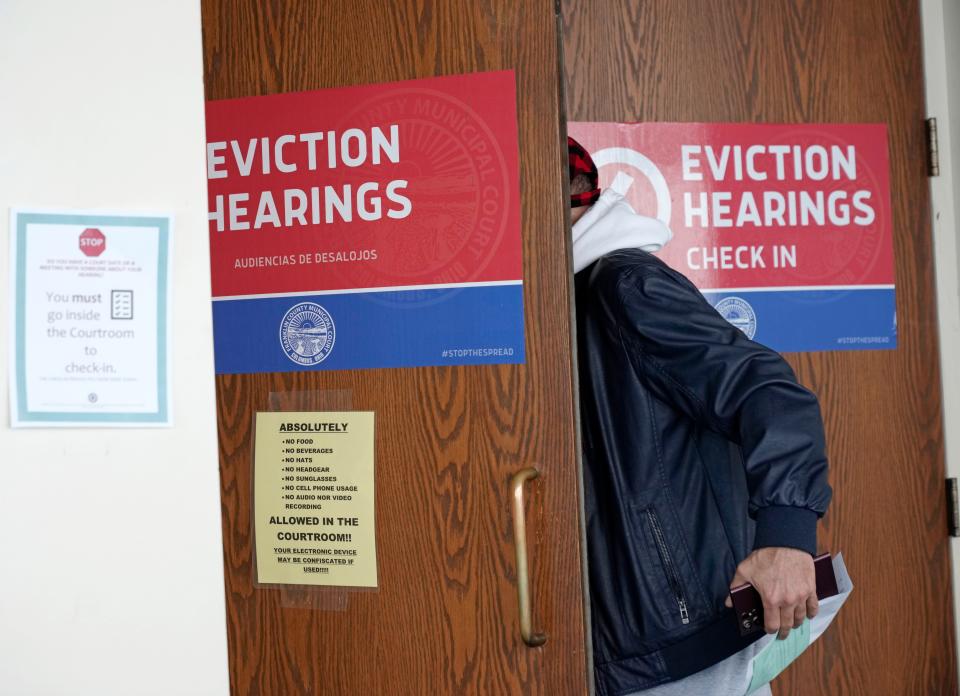
Her landlord hasn’t filed an eviction against her with the court, as she was able to pay her rent a few days later.
Eviction filings were at a 20-year high in Franklin County in 2023, making the pressure to avoid eviction a common struggle for many Columbus renters.
On each day of 2023, an average of 65 evictions were filed in Franklin County, with a total of 23,921 filings recorded for the year, according to the Franklin County Municipal Court.
And the numbers will likely keep increasing, said Franklin County Municipal Court Administrative Magistrate Tony Paat.

The county is on track to see about 26,000 evictions filed this year, said Paat, who has been hearing eviction cases for 30 years. It's not uncommon for Franklin County magistrates like Paat to see as many as 170 cases per day.
Filings are cyclical, he said, with rises typical after the winter holidays in January and again in the spring and summer when temperatures warm up.
In January, there were 2,785 evictions filed in Franklin County, the highest of any month for at least the past five years, according to the court.
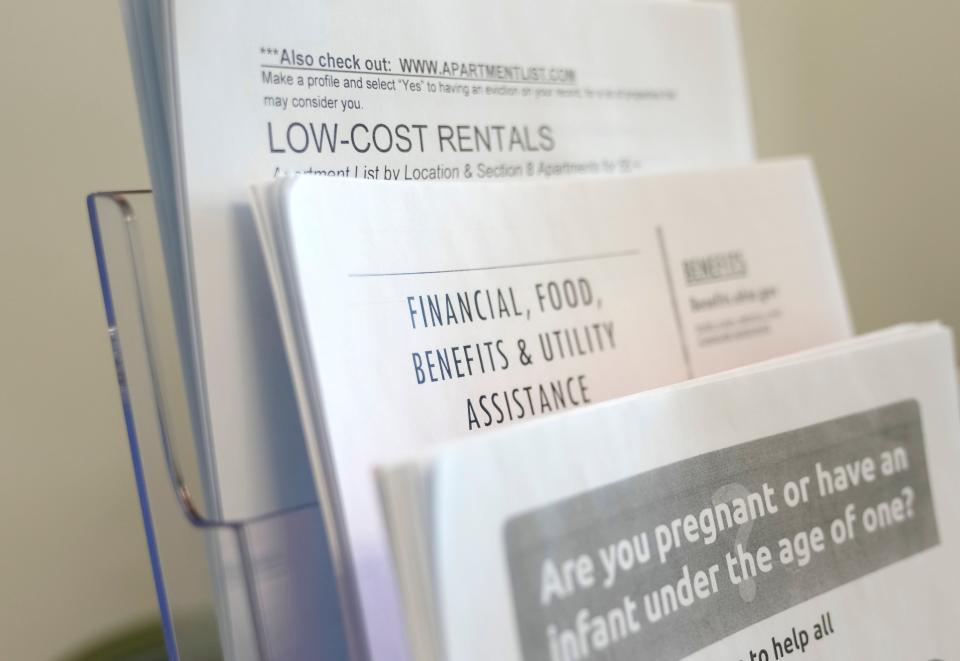
Eviction filings in Cleveland, Cincinnati aren't at Columbus levels
Eviction filings have been on the rise since 2022, when pandemic-era eviction moratoriums, created to help protect people financially hit by the COVID pandemic, ended. That year, there were 20,984 total evictions filed in Franklin County. In comparison, there were roughly 18,000 filings in 2019; 12,000 filings in 2020, and 15,500 in 2021.
Eviction filing rates in Columbus are up 35% in the past year (March 2023 to March 2024), compared to the pre-COVID average (which was calculated using 2012, 2013, and 2015 data), according to Princeton University's Eviction Lab, which tracks and reports evictions in 10 states and 34 cities. Evictions are rising in about half of those cities and states, said Adam Chapnik, a research specialist at the Eviction Lab.
And eviction filings are higher in Columbus than Ohio's other large cities. Filings in Cleveland and Cincinnati are consistently under pre-pandemic averages, he said.
"Protections that were keeping people in their homes are no longer doing that," Chapnik said. "And with the addition of rent inflation, it is a higher burden than it has been in the past for many renters to keep up on their rent."

Rent is about $200 higher per month on average in Columbus than it is in Cleveland or Cincinnati, Chapnik said, and about that much higher than it was pre-pandemic.
"Columbus is just more expensive for renters than other cities in Ohio," he said.
Why are evictions so high right now?
The number one reason people get evicted is failing to pay their rent, Paat said. With rents rising, he said, eviction filings are also going up.
The median Columbus rent jumped 3.8% from 2022 to 2023, the third largest jump nationwide after New York City and northern New Jersey, according to the real estate service Yardi Matrix.
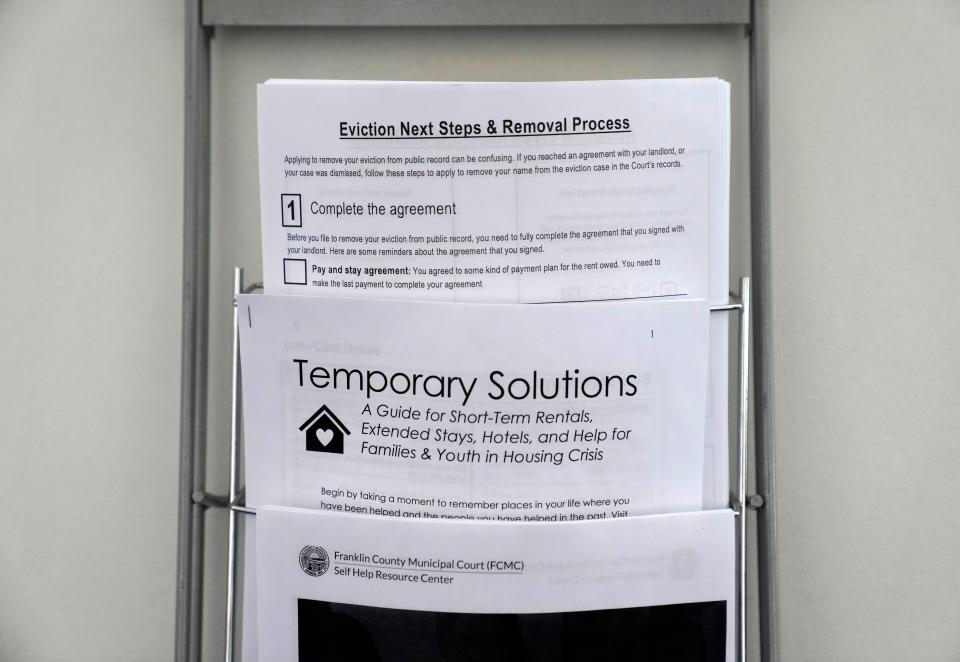
At the end of 2023, the median rent for a Columbus apartment was $1,298, Yardi Matrix reported. For a family of three whose income is at or below the 2024 federal poverty level at $25,820 annually, monthly rent and utilities would have to cost a total $717 per month to qualify as "affordable" and not exceed the benchmark of 30% of the renters' gross income.
Meanwhile, monthly household spending increases have doubled since before the pandemic, according to the Federal Reserve Bank of New York.
There are more people paying higher percentages of their incomes on rent, said Jeff Biehl, of Biehl Consultancy, a Columbus-based firm that works with nonprofit groups. As a result, more people who would maybe be considered middle-income earners are beginning to spend more than 30% of their income on housing, he said.

Which means if people have unexpected or emergency expenses pop up, they may have to shift their money and fall behind on their rent, said Biehl, who also compiles and analyzes Franklin County eviction numbers into a report called the Eviction Monitor.
"There's a lot of people going through stuff," Sullens said. "I feel like people should take that into consideration."
There's no one reason that evictions are increasing; it's multiple factors, said Melissa Benson, senior managing attorney of housing at the Legal Aid Society of Southeast and Central Ohio's Columbus office.
"Columbus has been hit by a perfect storm of various housing crises in the last couple of years," she said.

Included in those crises are a lack of available, affordable housing; rising rents; and pandemic-era protections like rental assistance going away.
Many point to the lack of affordable housing in Columbus as a big reason behind high eviction filings.
"We are a growing city, and rents keep going up, and people's incomes aren't necessarily keeping up with the rate of inflation and the rents," Biehl said. "But also, some of it is just supply and demand. More and more people are trying to get into fewer and fewer available properties."
Columbus has a shortage of 52,694 rental units for people who need affordable housing, with only about a fourth of extremely low-income families or individuals able to get housing in the city, according to a national report released in March.
There are only 26 affordable units per 100 extremely low-income renters in Columbus, according to the report by the National Low Income Housing Coalition (NLIHC) and the Coalition on Homelessness and Housing in Ohio (COHHIO).
"These trends could be reversed if we had more affordable housing, there's no doubt in my mind," Biehl said.
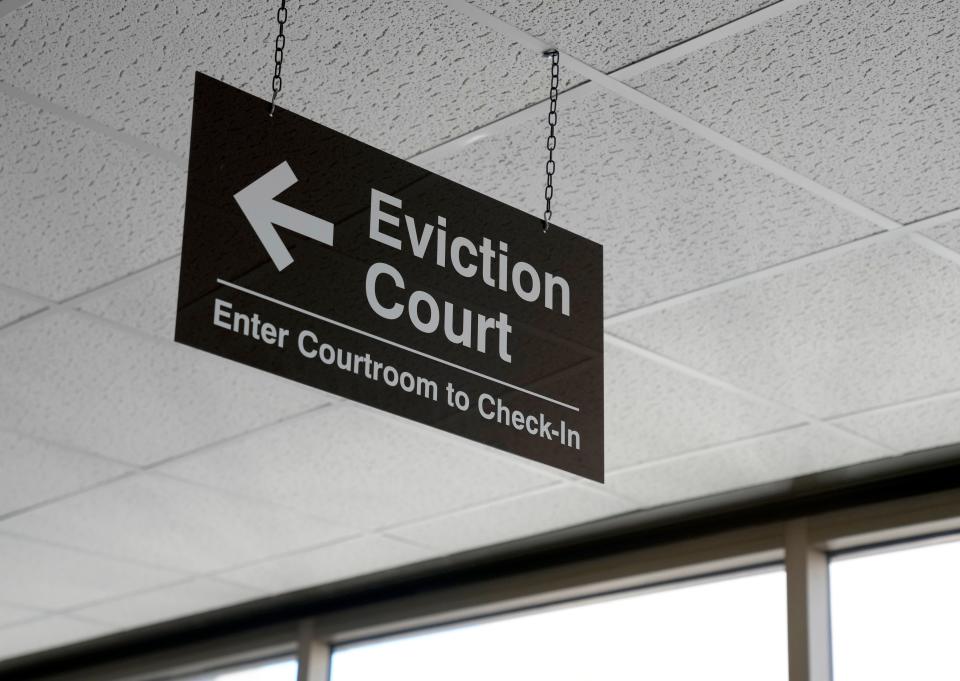
Can eviction be prevented?
Still, most evictions can be prevented, said Marcus Salter, a housing stability specialist at Community Mediation Services of Central Ohio.
Salter offers eviction prevention trainings and believes that education can be a solution to what he calls the "eviction crisis."
At a recent class at the Reeb Center on Columbus' South Side, 10 of the 11 attendees had previously had an eviction filed against them.
Salter said that in one year, 96% of them won't have another one on their record because they took the time to learn more about their rights.
"You know the resources now, you know who to call now," Salter said, after giving those in attendance tips, tenant rights information and how to learn more about their own rental histories.
The organization he works for, Community Mediation Services, sends mediators to Eviction Court to work with tenants and landlords and help them come to agreements.
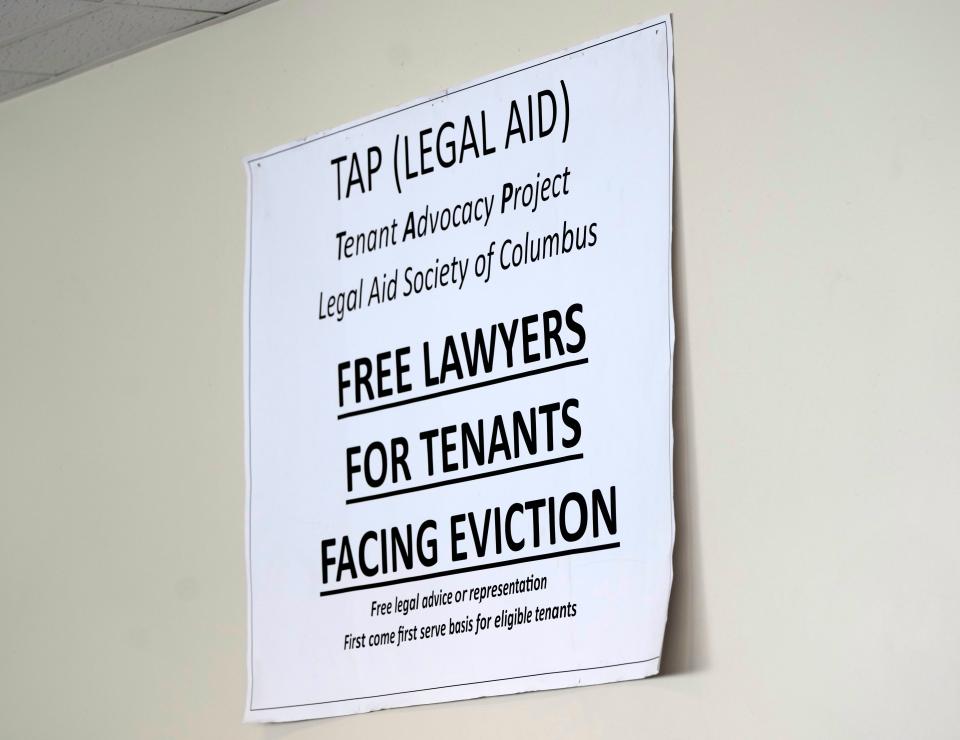
Outside the 11th-floor courtroom in Franklin County Municipal Court where eviction hearings take place are multiple resources for tenants, Paat said, including Legal Aid, the court's Self Help Center, which has resources and legal information for tenants, and groups that offer rental assistance.
"There's no shame in eviction — stuff happens," Salter told those assembled for his class.
Evictions can be an indication of how healthy or unhealthy a population is, Biehl, the evictions analyst and consultant firm owner, said. Without stable housing, there are a lot of disruptions to people's lives, he said.
"Housing is foundational to almost all stability in your life," Biehl said. "Maintaining a job, staying physically and mentally healthy because you're in a safe environment, food insecurity or food security — all those things start with stable housing."
@DanaeKing
This article originally appeared on The Columbus Dispatch: Columbus evictions hit 20-year high. Why it's going to get worse.

